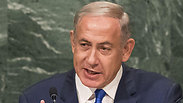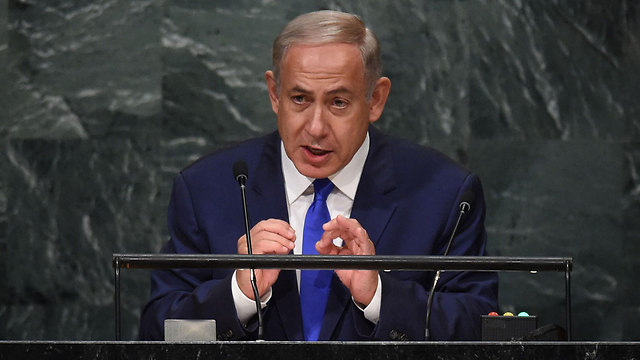
Israelis dissatisfied with foreign affairs, emphasize ties with Arab countries over BDS
A new survey finds that the Israeli public is not happy with the way the Foreign Ministry—and government in general—have been managng Israel's position in the world; among other issues, it would like Israel to initiate a peace process with the Palestinians and promote relatons with Arab countries over countering BDS and the threat from Iran.
Hot on the heels of Prime Minister Benjamin Netanyahu's UN speech, where he spoke directly to the Arab world, a new survey found that the Israeli public is unhappy with the government's conduct in the international arena, and that it views establishing diplomatic relations with moderate Arabs countries and Israel initiating the peace process with the Palestinians as highly important.
The survey, published by Mitvim—the Israeli Institute for Regional Foreign Policy—was looking to give an accurate description of Israeli public opinion in 2016. The survey touched upon many topics, finding that Israelis are generally dissatisfied with the government’s conduct in international relations, the stalled peace process with the Palestinians, Israel’s standing in the international community, the government’s foreign policy, and the Foreign Ministry’s performance.
Rather surprisingly, the public does not view Iran or the BDS movement as top priorities, emphasizing instead the importance of strengthening Israel’s ties with the US. Two additional issues considered to be central topics are the Israeli-Palestinian peace process and the country’s relationship with moderate Arab countries.
Despite a small level of improvement compared to 2015, only 10% of the Israeli public currently feels Israel is doing well in terms of its relationship with other nations and global organizations. A large majority thinks that its foreign policy does not work according to any clear-cut principles, and that the lack of a full-time foreign affairs minister (Netanyahu currently also serves as the foreign affairs minister) hurts the country’s national security. The public’s dissatisfaction with the government’s foreign affairs was found to unite supporters of different political parties and points of view.
While the Israeli public at large views Israel as a local power, it does not hold the view that “the world is against us,” while most of Israel believes that regional cooperation with Arab countries is achievable.
US President Barack Obama’s final months in office are not seen by the Israeli public as an opportunity to progress relations with the Palestinians. Rather, Israelis wish that Israel would start taking initiative by presenting its own solution to the conflict. The public would also like the international community to offer Israel incentives for peace with the Palestinians, including normalizing relations with Arab countries, US security guarantees and improving relations with the EU.
Russia, Britain and France are becoming increasingly more important in the eyes of the Israeli public, while Germany has maintained its importance. As Egypt falls slightly in perceived importance, Turkey has risen, likely due to the recent reconciliation agreement and the potential of exporting natural gas.
The survey also found that out of all the different political minorities in Israel, the public would first and foremost want to see more women involved in matters of foreign affairs. Arabs were another minority that many Israelis—including Israeli Arabs—would like to see involved in foreign affairs.











